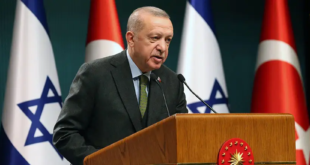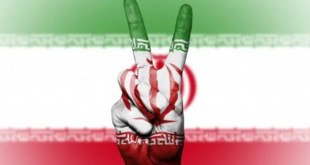Pakistan
Violent clashes erupted between hardline Sunni group and law-enforcement agencies in Punjab; deadly militant attacks and military operations persisted. Calling for release of detained party chief and expulsion of French ambassador, Tehreek-e-Labaik Pakistan (TLP) 21 Oct vowed to march from Punjab’s Lahore city to capital Islamabad. In violent clashes, TLP activists killed seven police officers, including two in Lahore 22 Oct, and four 27-28 Oct some 50km away, while injuring more than 600 members of security forces in Punjab province. Holding negotiations with TLP leaders, interior ministry 24 Oct said it accepted TLP demands, including release of chief and detained activists. Protests for expelling French ambassador and deadly clashes with police however persisted, prompting paramilitary Rangers 27 Oct to deploy in Punjab. Information ministry 27 Oct said govt decided no further negotiations with “militant group” would take place until protests end; yet interior ministry same day said talks with TLP leadership ongoing. Meanwhile, militant attacks and security operations continued at high intensity. In Khyber Pakhtunkhwa province, Pakistani Taliban attack 2 Oct killed five soldiers in North Waziristan district. Militants 4, 16, 20 Oct killed two soldiers, police officer and local politician in North Waziristan, Hangu, Bajaur and Lower Dir districts. Bomb blast 7 Oct killed three people in North Waziristan district. Roadside bomb 20 Oct killed two soldiers and two police officers in Bajaur district. Militant attacks 22 Oct killed two soldiers in North Waziristan district; four police officers 26 Oct in Mianwali district, two soldiers 26-27 Oct night in Kurram district, and two soldiers 27 Oct in North Waziristan district. In Balochistan, roadside bomb 18 Oct killed police officer in Quetta district; militant attack 20 Oct killed soldier in Kech district. PM Khan 1 Oct disclosed govt was negotiating with some factions of Pakistani Taliban, Pakistani Taliban group in North Waziristan same day confirmed information. Interior minister 4 Oct however said no talks “have taken place yet”, and negotiations “will be carried out only with those who lay down arms” and abide by constitution.
Bosnia and Herzegovina
Republika Srpska leadership took steps to undermine federal institutions, sparking worst political crisis in 20 years and raising prospect of secession. In moves threatening collapse of 1995 Dayton Peace Accords, Bosnian Serb leader Milorad Dodik 8 Oct said Bosnian Serb-run entity Republika Srpska would pull out of Bosnian armed forces, top judiciary body and tax administration; 12 Oct announced Bosnian judiciary, security and intelligence agencies would be banned from operating in Republika Srpska and “Serb only” institutions would replace them by end of Nov, announcing he was “openly working on the project of an independent Republika Srpska” but stopping short of calling for secession. Republika Srpska President Zeljka Cvijanovic signed law which came into force 13 Oct to reverse ban on genocide denial introduced by previous High Representative for Bosnia and Herzegovina Valentin Inzko in July. Dodik 14 Oct announced intention to unravel further Bosnian state institutions, including state court, prosecution, and constitutional court. Prosecutors subsequently launched investigation of Dodik for “undermining the constitutional order”. National Assembly of Republika Srpska 20 Oct adopted law creating independent medicine procurement agency, undermining federal Agency for Medical Equipment and Drugs; EU and U.S. same day expressed concerns over “divisive rhetoric” and called for respect of institutions. Bosnia’s Serb police 22 Oct held “anti-terrorist” drill in Mount Jahorina, outside capital Sarajevo and in Mrkonjic Grad in move seen by Bosnian Croat and Bosniak leadership as “a clear provocation”. EU and U.S. 29 Oct reaffirmed support for unified Bosnia and said they were working with Bosnian officials to solve political crisis.
Lebanon
Investigation into Aug 2020 Beirut port explosion sparked divisions within govt and deadly sectarian clashes in capital Beirut. Investigative Judge Tareq Bitar 12 Oct issued arrest warrant for former Minister of Finance Ali Hassan Khalil, close aide to head of Shiite party Amal and Speaker of Parliament Nabih Berri, for failing to appear for questioning over Aug 2020 Beirut port explosion; Hizbollah Sec Gen Hassan Nasrallah previous day accused Bitar of “biased” and “politicised” investigation and demanded judge be replaced; Lebanese courts repeatedly turned down legal challenges by Khalil and other politicians against Bitar. Political row over investigation into port explosion forestalled cabinet meetings and govt work from 13 Oct, as Shiite ministers reportedly threatened walk-out if Bitar not removed. Dispute also triggered lethal fighting in capital Beirut. Hizbollah and Amal 14 Oct mobilised protest in front of Palace of Justice, located in Christian neighbourhood adjacent to Shia-populated areas; gunfire and three-hour-long street battle ensued, killing seven Shiite Muslims, in troubling reminder of sectarian clashes during civil war (1975-1990). Hizbollah leader Hassan Nasrallah 18 Oct accused Christian party Lebanese Forces of staging ambush, while Lebanese Forces blamed violent protesters; Nasrallah called for official investigation and warned: “We won’t leave the blood of our martyrs on the ground”. Meanwhile, power supplies across country marginally improved by mid-month as Central Bank further depleted currency reserves, while roll out of rationing card faced bureaucratic complications. Following collapse of talks in June 2020, govt 19 Oct resumed negotiations with International Monetary Fund on financial assistance. U.S. 14 Oct voiced support for plan to deliver gas and electricity to Lebanon via Syria and also pledged additional $67 mn for Lebanese Armed Forces. Parliament 19 Oct voted to bring elections, initially scheduled for 8 May 2022, forward to 27 March. Diplomatic spat late month erupted with Gulf states after footage emerged of Information Minister George Kordahi criticising Saudi-led war in Yemen; in move that could damage govt credibility and compound domestic crises, Riyadh, Kuwait, Bahrain and United Arab Emirates expelled Lebanese ambassador and recalled their ambassadors from Beirut, while Riyadh banned all Lebanese imports.
Syria
Deadliest attack in capital Damascus since 2017 killed over dozen regime soldiers, missile attack on Turkish forces raised prospect of renewed offensive in north west and hostilities rose in Idlib. In rare attack, two roadside bombs 20 Oct targeting bus carrying troops killed at least 14 military personnel. In north west, guided missile fired 10 Oct from Tel Rifaat city – controlled by People’s Protection Units (YPG), Syrian armed group with links to Kurdistan Workers’ Party (PKK) – struck Turkish vehicle near Azaz city, Aleppo governorate, killing two Turkish officers; Kurdish militant group Afrin Liberation Forces reportedly carried out attack. Turkish forces responded by shelling YPG areas while Turkish President Erdoğan next day called attack “final straw”, raising prospect of renewed Turkish offensive against YPG. In Idlib province, March 2020 ceasefire held despite uptick in Russian airstrikes and regime attacks. Car bomb 11 Oct killed at least nine, injured ten near govt offices in Afrin city, Aleppo governorate. Regime forces 16 Oct shelled police station in rebel-held Sarmada town, Idlib, killing four and injuring at least 17. Reports mid-month surfaced of govt forces’ build up near Idlib governorate. Following Damascus attack, regime shelling 20 Oct killed at least 11, injured 30 in Ariha town, Idlib, in one of deadliest violations of March 2020 ceasefire. Other attacks during month killed at least six Turkish soldiers. In Daraa city in south west, Sept ceasefire deal held. In Deir ez-Zor governorate, unidentified drones 8, 11 Oct reportedly targeted Iran-affiliated militants. In central desert, clashes between Islamic State (ISIS) and govt forces, supported by Russian airstrikes, killed dozens throughout month. Alleged Iran-backed drone strike 20 Oct targeted U.S. military outpost in al-Tanf garrison in Homs governorate. Israeli airstrikes 8, 13 Oct killed regime soldiers and Iran-backed militants in Homs governorate, 30 Oct reportedly hit target in Damascus suburbs. Israeli sniper 16 Oct reportedly killed former Syrian Druze lawmaker in village near occupied Golan Heights. UN Special Envoy for Syria Geir Pedersen 17 Oct announced Syrian Constitutional Committee agreed to start drafting new constitution during UN talks; Pedersen 22 Oct however called talks “big disappointment”.
Yemen
Huthis launched multi-pronged assault in central Yemen, increasing risk of battle for Marib city, while tensions between govt and Southern Transition Council (STC) escalated in south. On military front, after consolidating control in al-Bayda governorate in Sept, Huthi forces made major breakthroughs in last contiguous bloc of territory under govt control in central Yemen’s Abyan, Shebwa and Marib governorates, substantially raising likelihood of battle for Marib city. Huthis early month encircled Abidya district and gained control of Rahaba and Harib districts in Marib governorate as well as Usaylan, Bayhan and al-Ain districts in Shebwa governorate; gains enabled push into Jebel Murad and al-Jubah districts in Marib governorate in attempt to surround Marib city; fall of Marib city would deal heavy blow to govt credibility and UN mediation efforts. Meanwhile, Huthis continued cross-border attacks into Saudi Arabia (see Saudi Arabia). In Hodeida governorate, Saudi-led coalition 6, 23, 24 Oct destroyed eight explosive-laden boats amid reports of build-up of Huthi forces. In south, tensions between govt and separatist STC rose; notably, gun battles between rival forces in Aden 2 Oct killed four militants. Car bomb targeting Aden Governor Ahmed Lamlas and Govt Minister Salem al-Socotri 10 Oct killed six and injured seven others; Lamlas and al-Socotri survived. Car bomb at Aden Airport 30 Oct killed several civilians. PM Maen Saeed Abdulmalek 12 Oct returned to Aden for first time in over six months. Insecurity and protests persisted in Aden as well as Lahij, Mukalla, Abyan governorates and Socotra island; notably, gunmen 4 Oct killed humanitarian worker in Tur al-Baha district, Lahij. On diplomatic front, UN Envoy Hans Grundberg continued regional listening tour, including in Saudi capital Riyadh and Aden in first Yemen visit since taking up position. In UN Security Council briefing, Grundberg 14 Oct confirmed meeting Huthi representatives in Omani capital Muscat and highlighted “growing gap” between Huthi’s and govt’s visions of ceasefire and political settlement. Economic situation worsened with ongoing fuel and electricity shortages. Yemeni riyal 17 Oct fell to record low YR1,385 to dollar, prompting govt to close exchange shops and implement measures to curb demand for foreign currency.
 Eurasia Press & News
Eurasia Press & News



